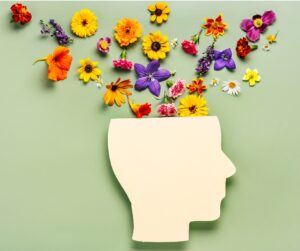 When it comes to the interplay between our mental state and our physical health, mind-body connection isn’t just a theory; it’s a reality. Holistic wellness practices have embraced this for ages, recognizing our psychological well-being can significantly influence our biological processes. This comprehensive article explores the role of holistic techniques in enhancing this connection.
When it comes to the interplay between our mental state and our physical health, mind-body connection isn’t just a theory; it’s a reality. Holistic wellness practices have embraced this for ages, recognizing our psychological well-being can significantly influence our biological processes. This comprehensive article explores the role of holistic techniques in enhancing this connection.
The Role of Diet in Mental Health
The adage “you are what you eat” holds true when it comes to mental health. Foods high in omega-3 fatty acids, such as salmon and flaxseeds, have been linked to reduced rates of depression. Antioxidants found in berries can combat oxidative stress, which is linked to anxiety and depression. Vitamins from whole foods support brain function. To integrate these into your diet, consider meal planning with a focus on colorful, varied foods that are as close to their natural state as possible.
Exercise as a Supplement
Exercise is a powerful natural remedy for mental health challenges. It releases endorphins, which have mood-boosting properties. Even moderate exercise, like a daily walk or yoga, can make a significant difference. To make exercise a habit, start with activities you enjoy, and gradually increase the intensity and duration as your fitness improves. Remember, consistency is key, and every bit of movement counts.
Hemp for Mental Health: A New Frontier
The investigation into hemp products such as CBD and THCA to support mental health represents a significant step forward in the field of natural supplements. It’s important to note these particular byproducts are distinct from THC, the compound typically associated with psychoactive effects. Cannabinoids are currently being researched for their potential in reducing stress and anxiety symptoms. As with any supplement, it’s crucial to consult a healthcare professional before incorporating cannabinoids into your routine, to guarantee both safety and effectiveness.
Mindfulness and Meditation
Mindfulness and meditation are powerful tools for mental health. They teach us to live in the present and to observe our thoughts without judgment. This can be particularly helpful in managing stress and anxiety. To practice mindfulness, one can start with just a few minutes a day, focusing on the breath or engaging in a mindful activity like gardening or even washing dishes. Over time, these practices can significantly alter our response to stress.
The Importance of Sleep
The correlation between sleep and mental health cannot be overstated. Poor sleep can exacerbate mental health issues, while good sleep can enhance well-being. To improve sleep, establish a regular sleep schedule, create a restful environment, and consider natural sleep aids like melatonin or magnesium if needed. Avoiding screens before bed and winding down with a book or meditation can also promote better sleep.
The Power of Community
Humans are inherently social beings, and our connections with others have a profound impact on our mental health. Engaging in community activities, whether it’s a sports team, book club, or volunteer work, can provide a sense of purpose and belonging. In times of stress, having a support network to turn to can make all the difference. To build your community, reach out to local organizations or online groups that align with your interests.
Herbs and Flowers: Nature’s Healers
Herbs and flowers have been nature’s pharmacy for millennia, offering remedies for a host of ailments. For example, lavender can be used in aromatherapy to help induce calmness and reduce stress. Chamomile, often consumed as tea, is known for its soothing effects that can aid in sleep. Ashwagandha, an adaptogen, helps the body resist stressors. Incorporating these into a daily routine can be as simple as having a cup of herbal tea before bed or using essential oils during meditation or yoga.
Supporting Mental Health
In embracing the mind-body connection, we open ourselves to a world where mental and physical health are inextricably linked. By thoughtfully integrating natural supplements into our lives, we can support this balance and enhance our overall well-being. The journey to wellness is indeed personal, but it is also universal, encompassing every aspect of our being.
Story written by Rachel Heffner, www.homeworkbliss.com



